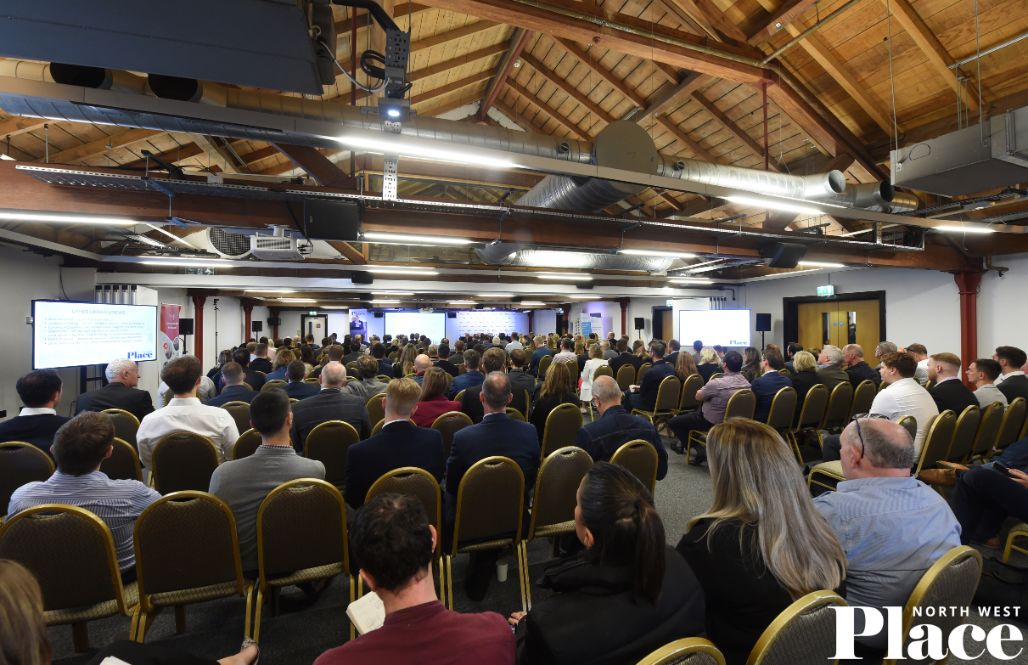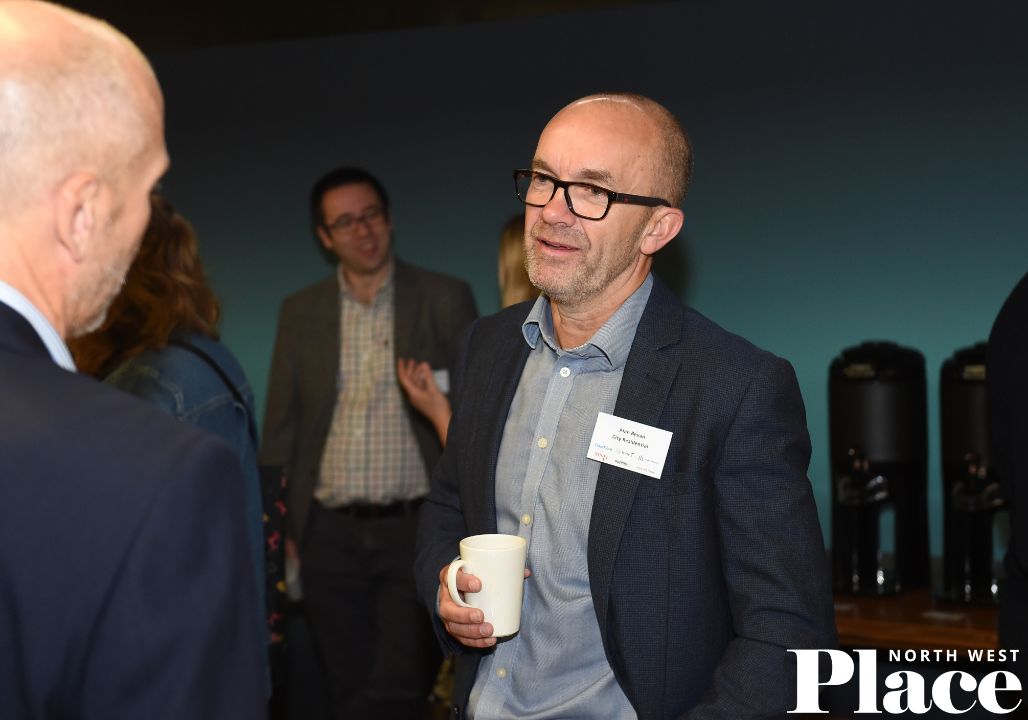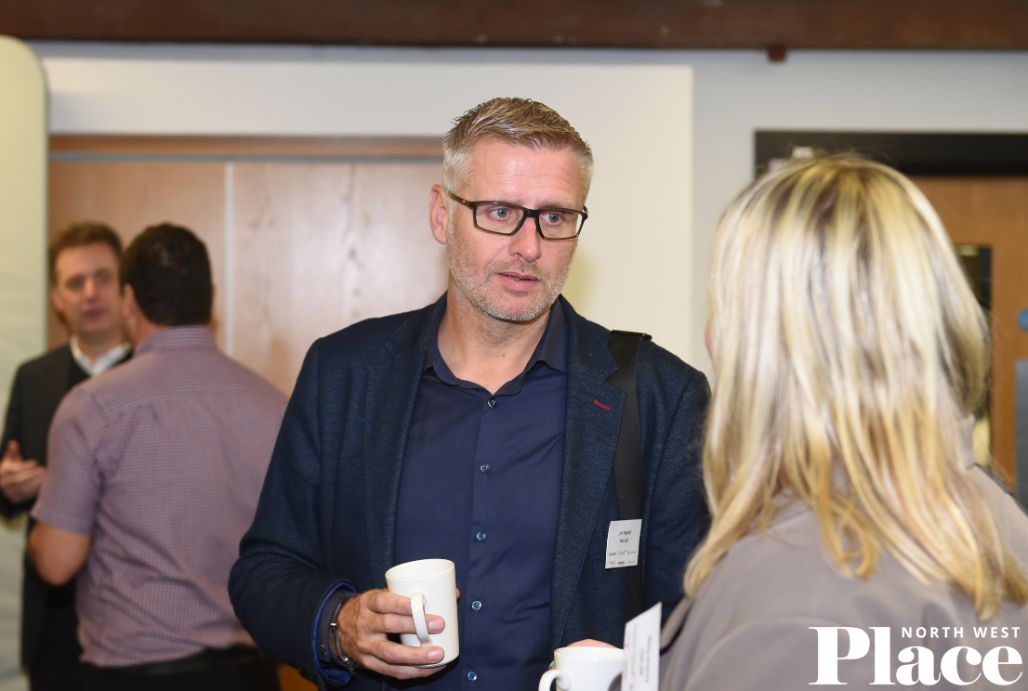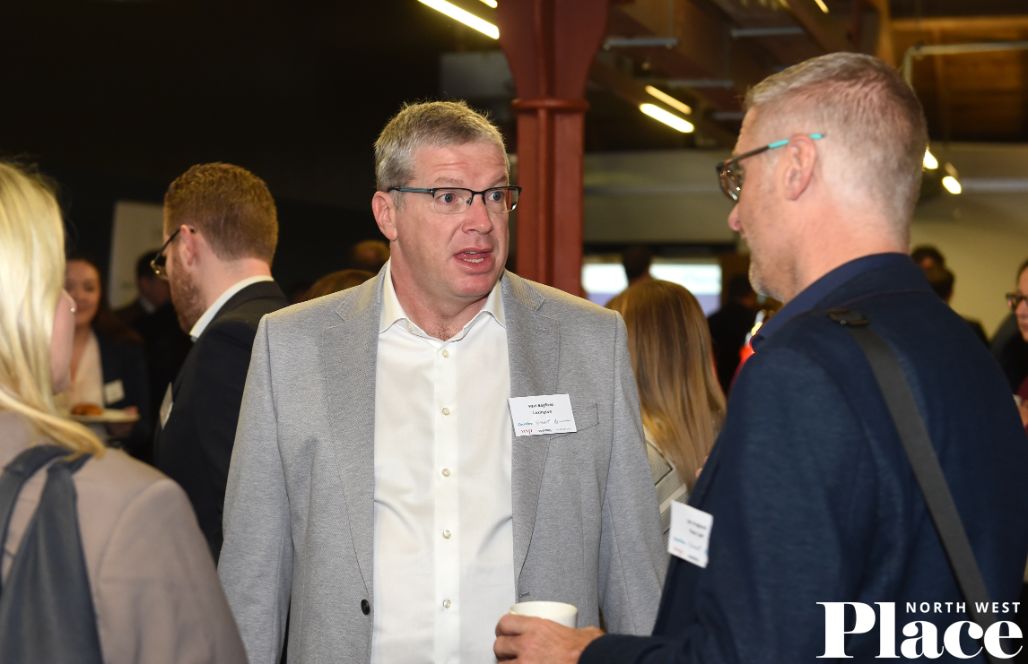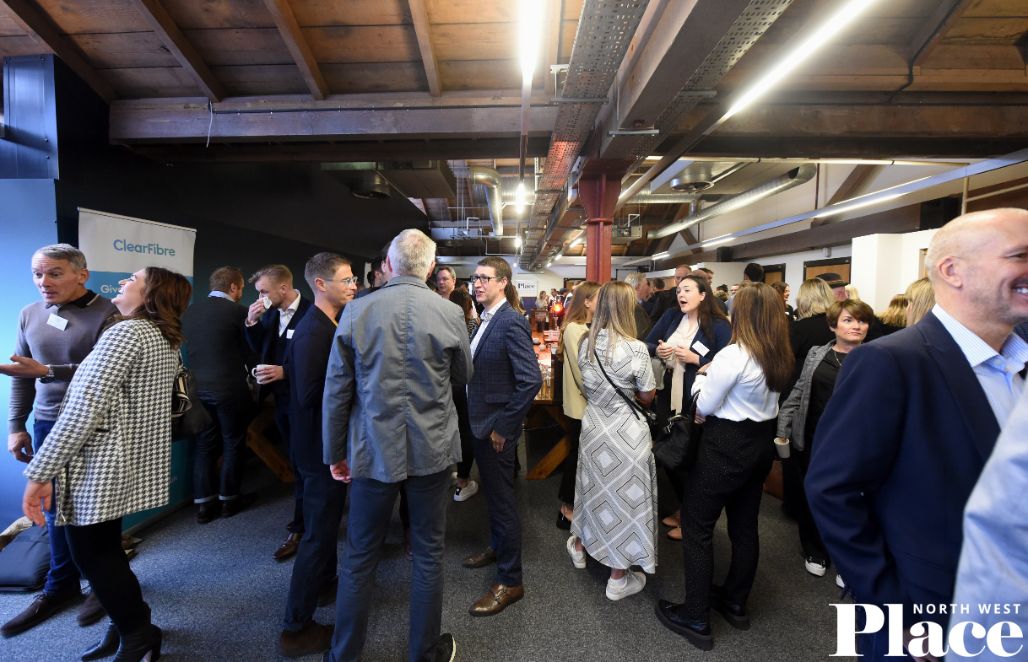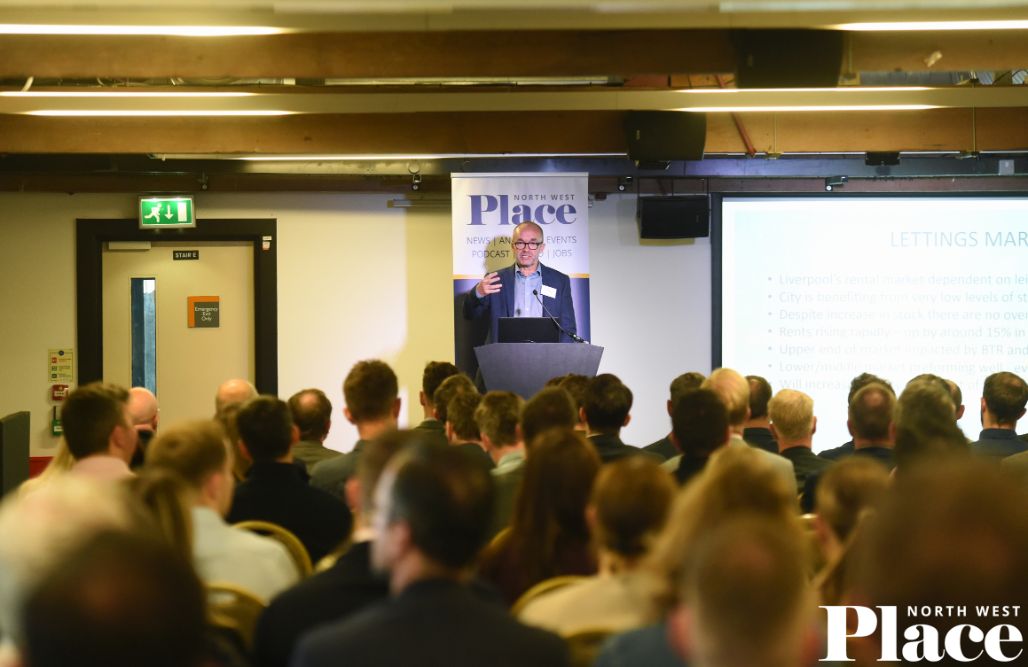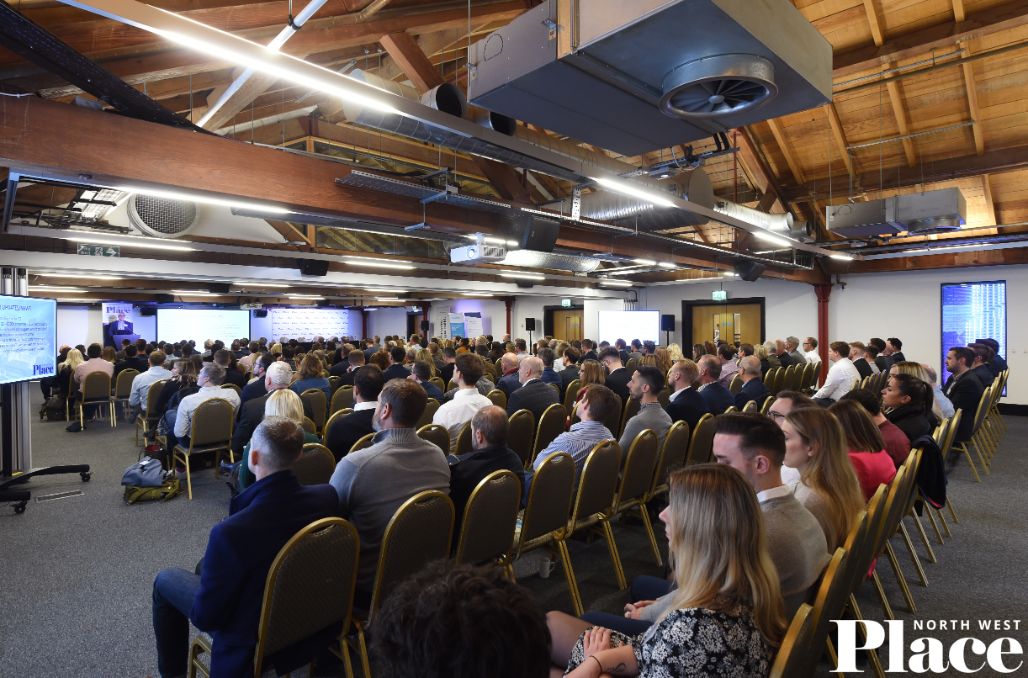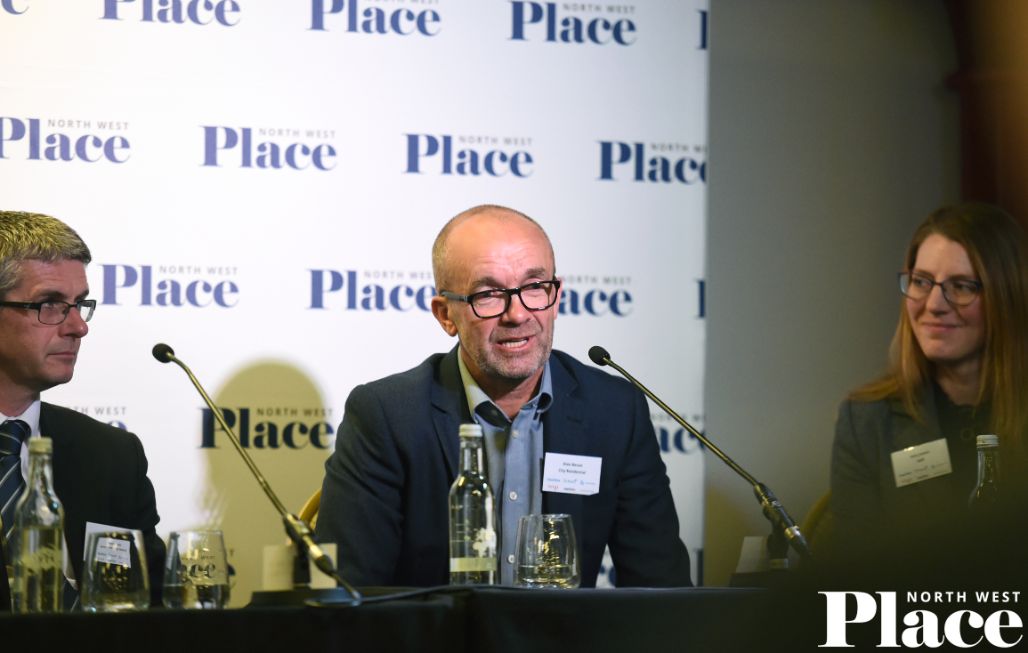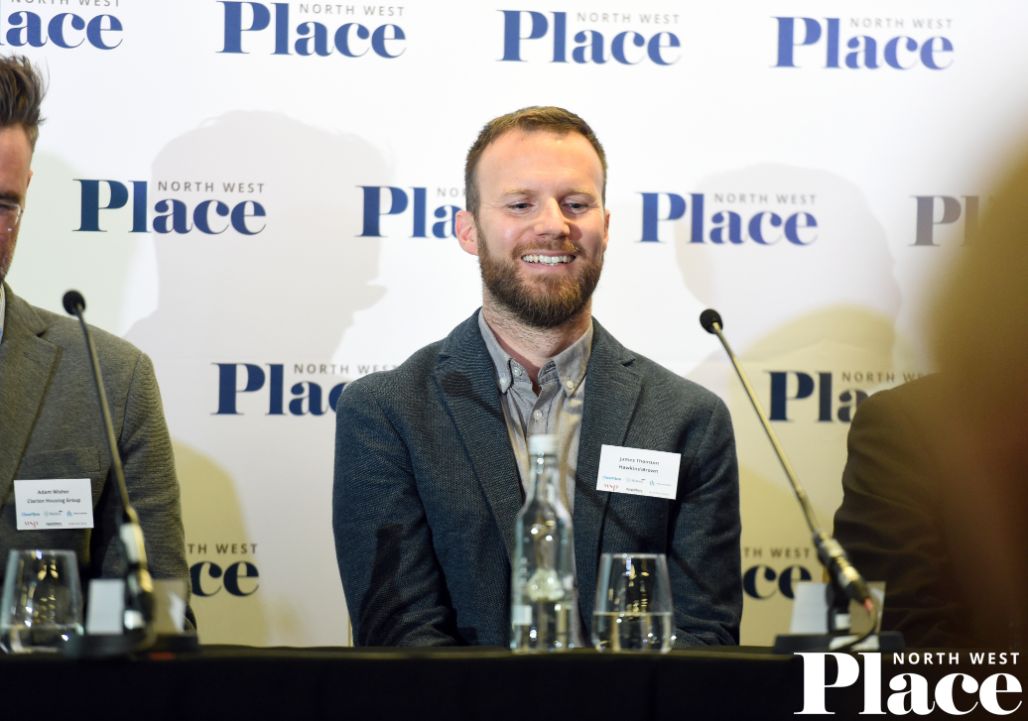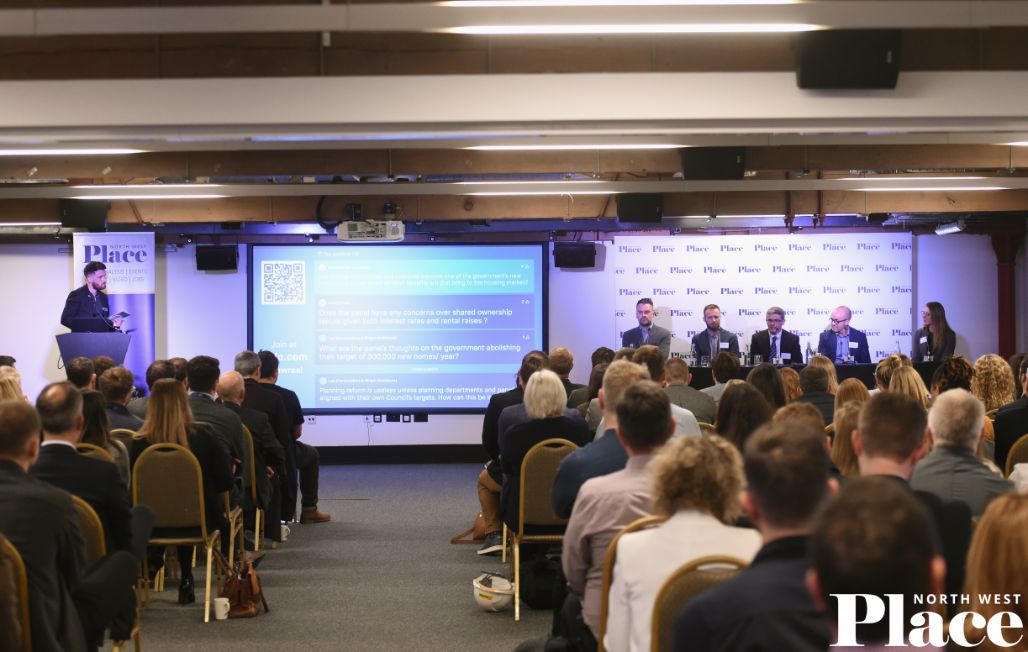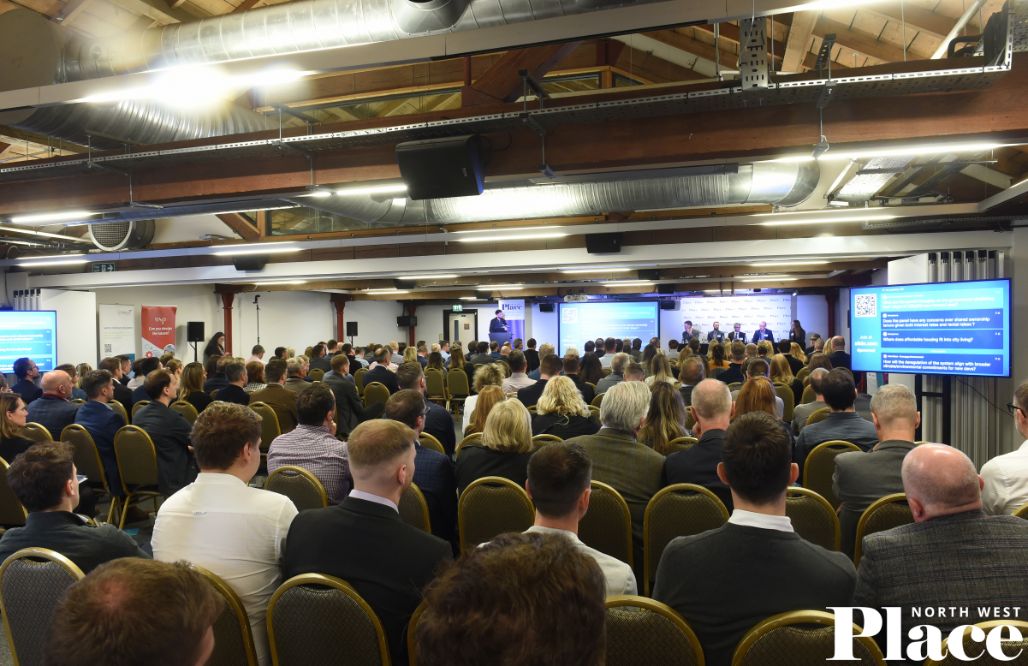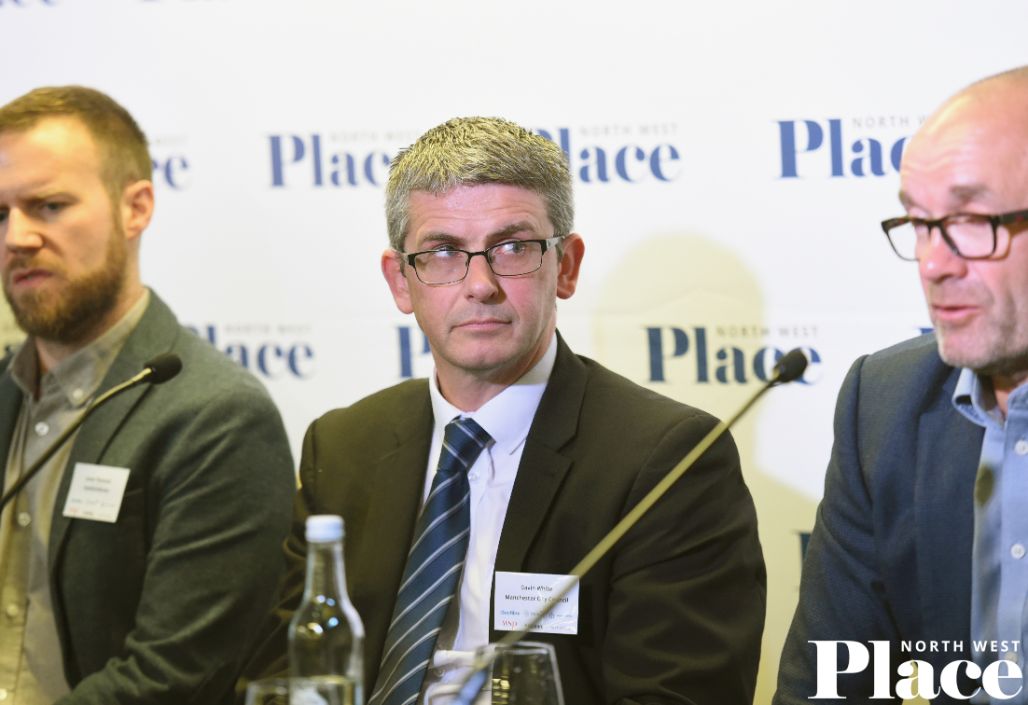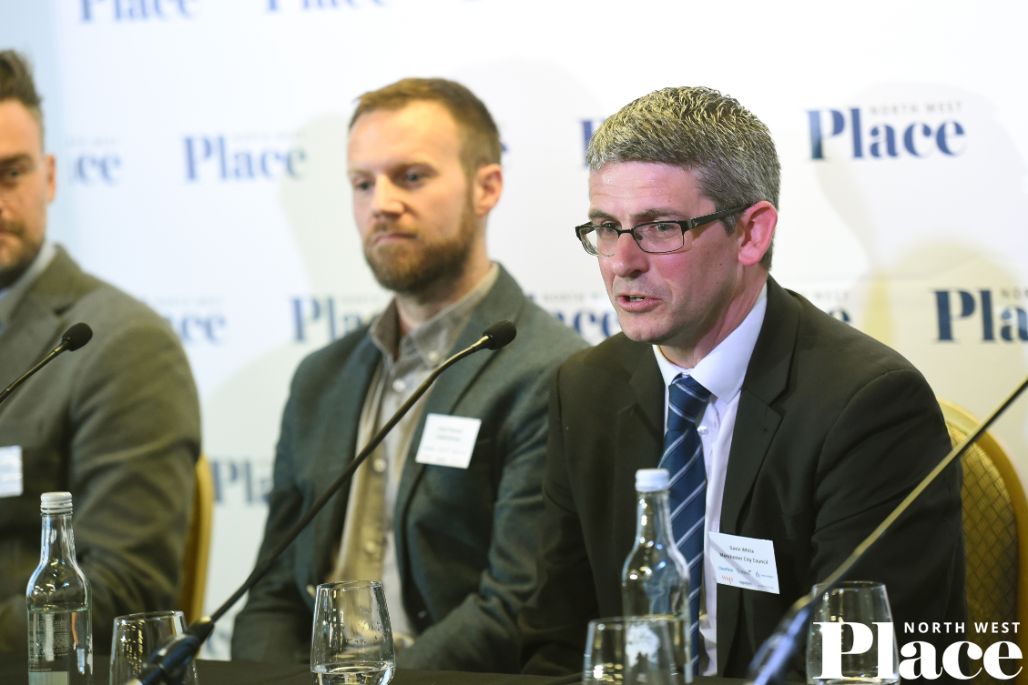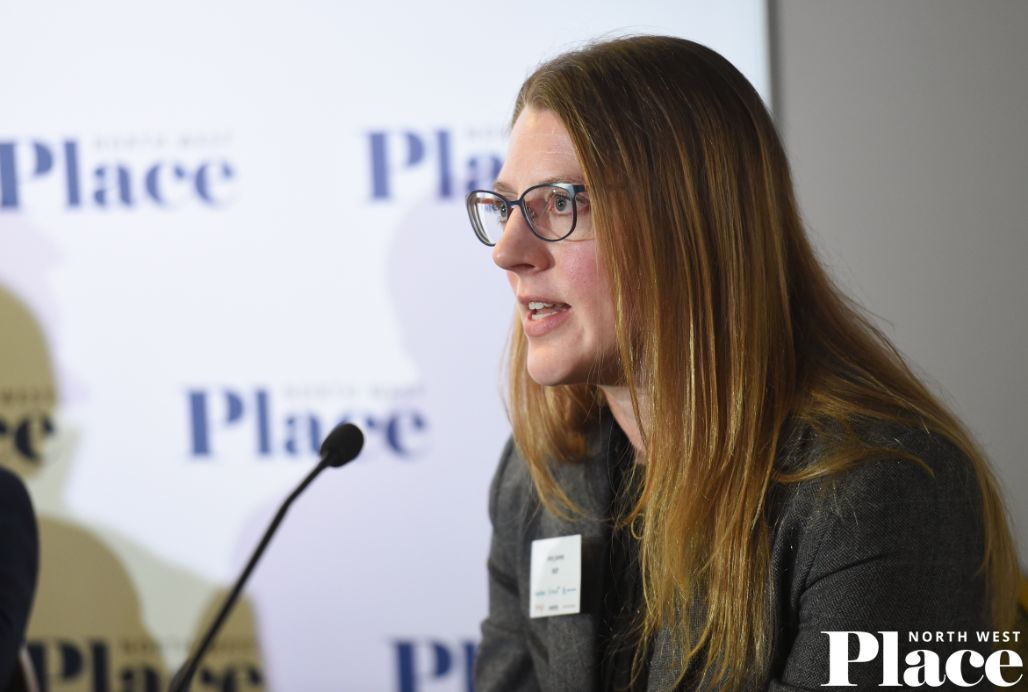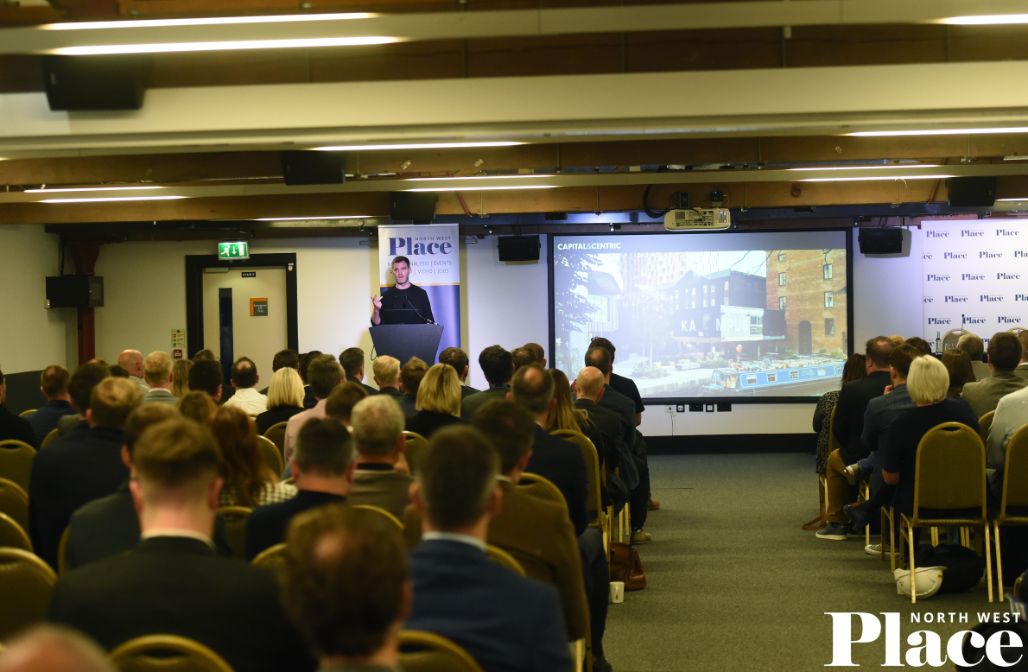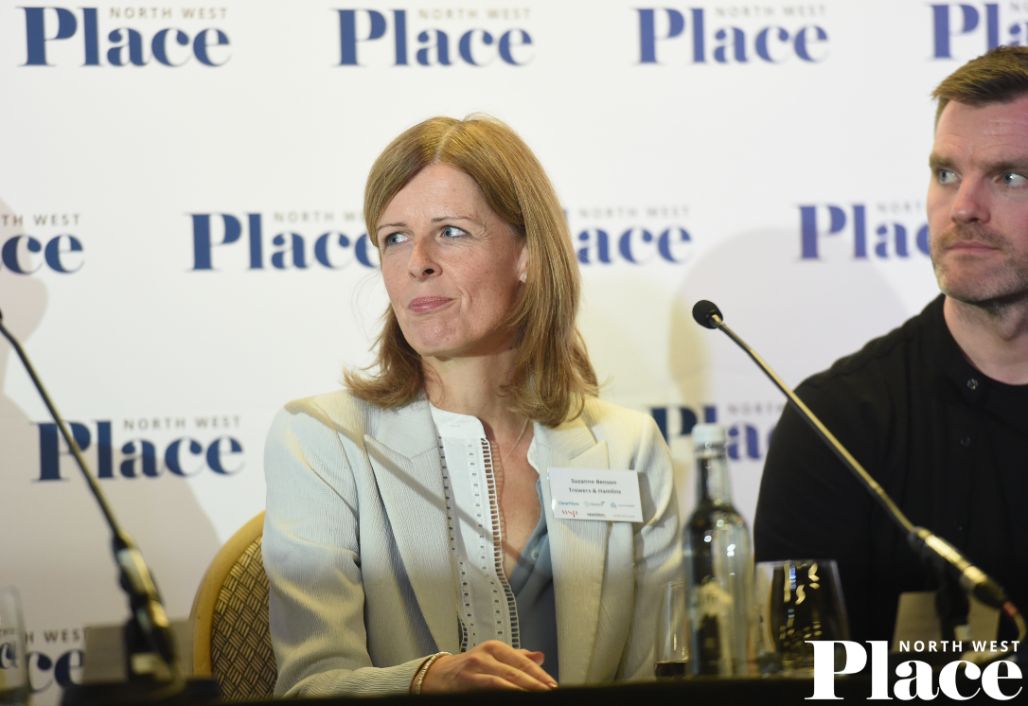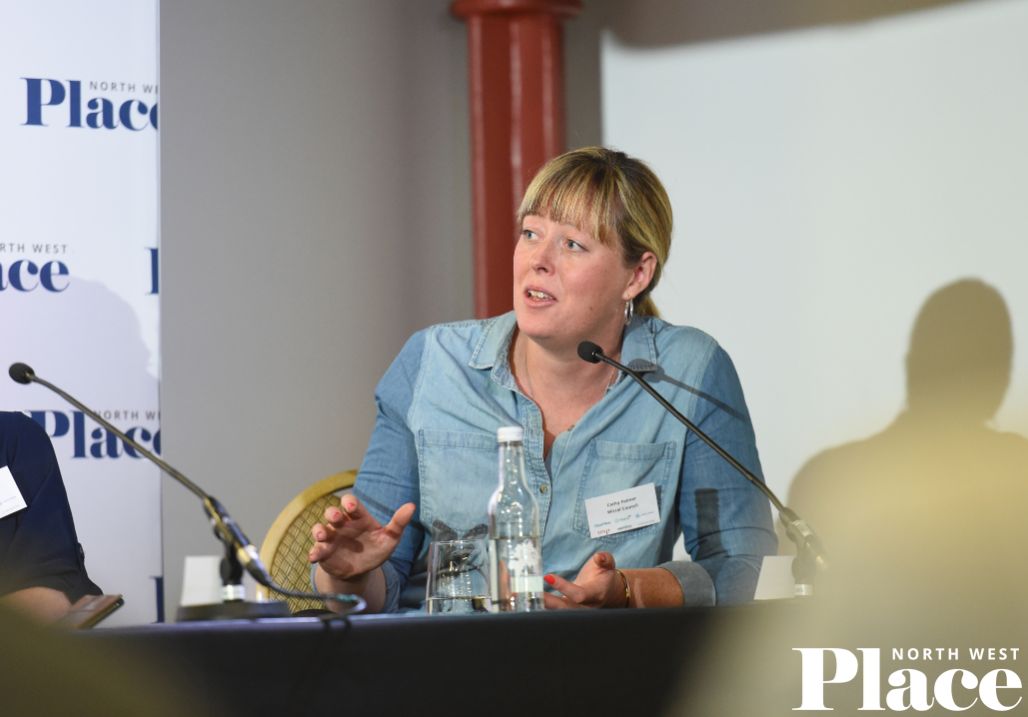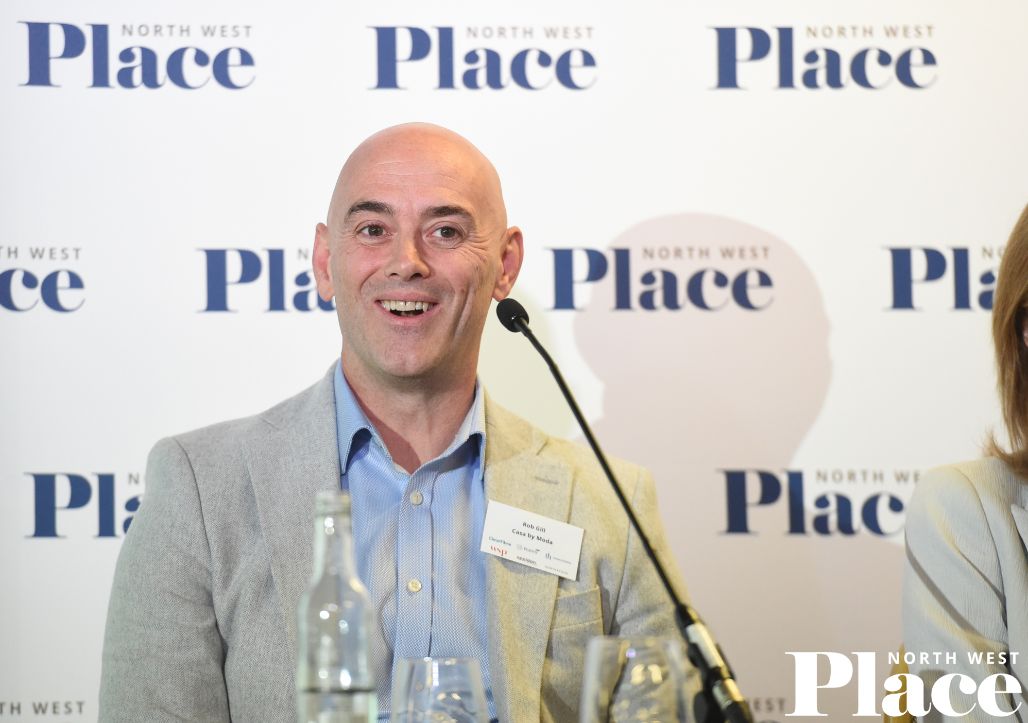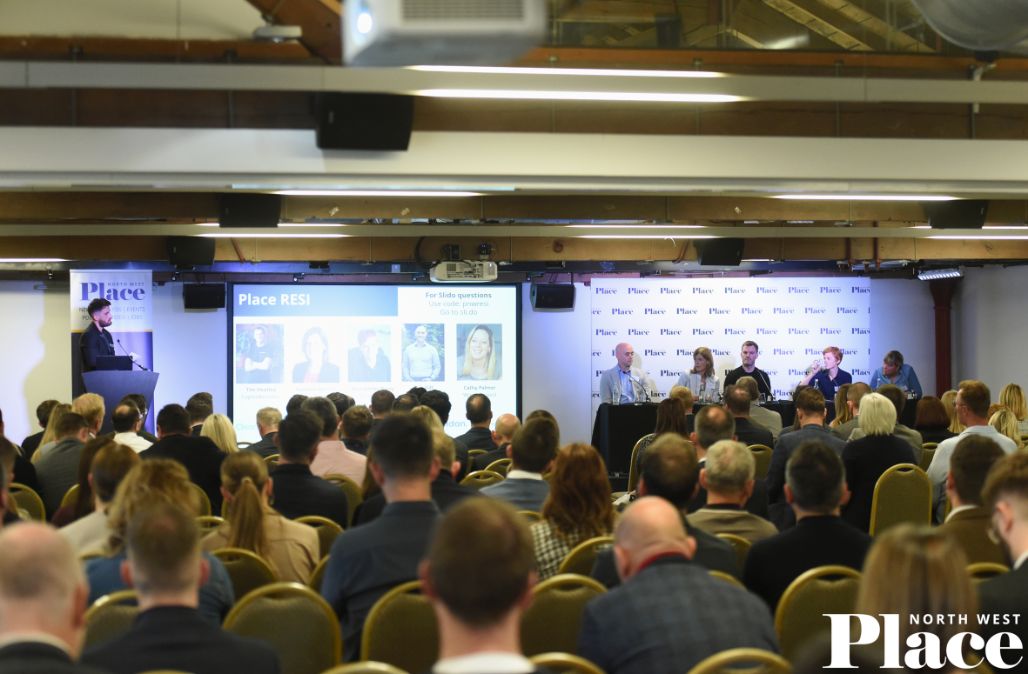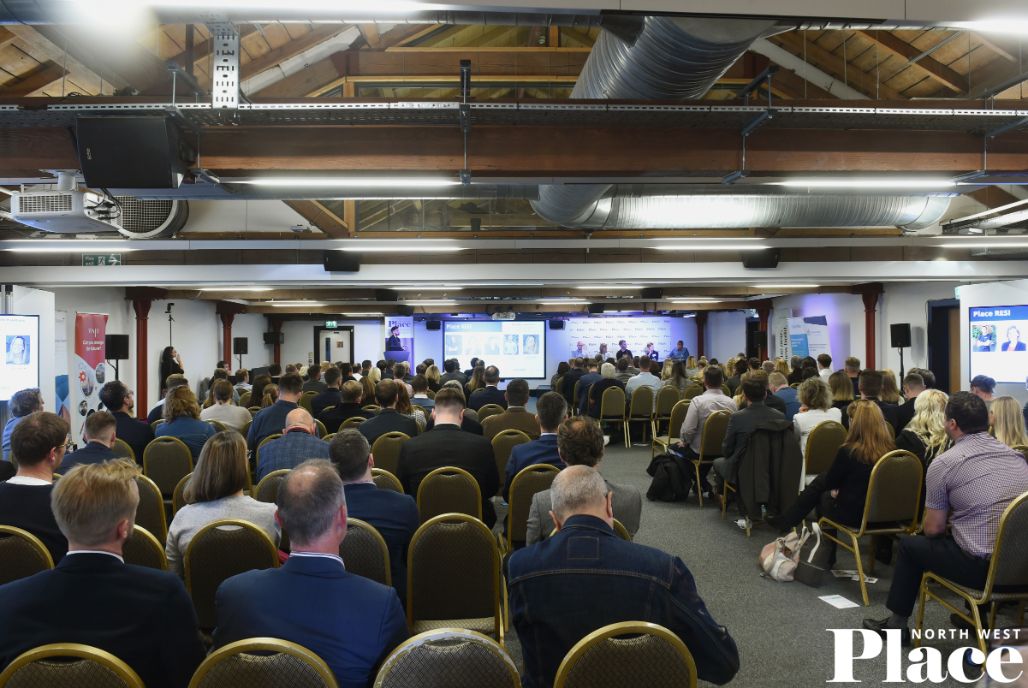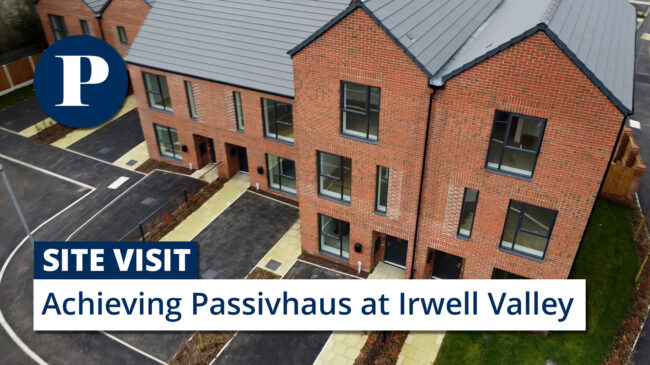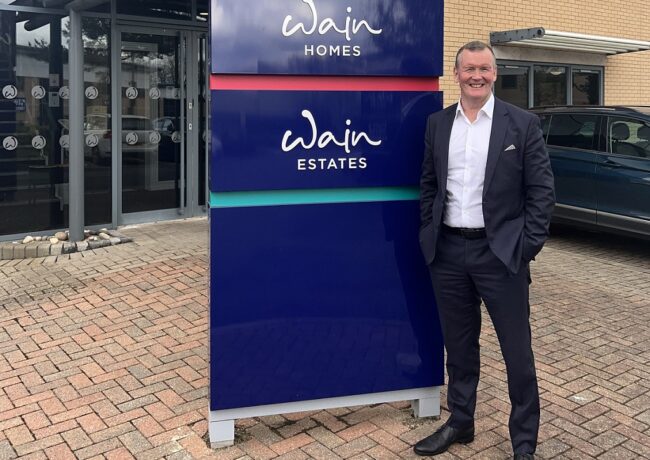Event Summary
Place RESI | Photos and summary
City living or discovering the suburban dream? Capturing demand was the focus of this Place North West event at Manchester’s Science & Industry Museum.
The event on 13 October was sponsored by ClearFibre, Wates Construction, Trowers & Hamlins, WSP, Oppidan, and Northstone. It was hosted by Dan Whelan, senior reporter at Place North West, and attracted 200 people.
Here are some of the big talking points from the event.
Scroll down to see photos and slides from the event.

Life in Liverpool
Alan Bevan, managing director of City Residential, began with an honest look at Liverpool, a place he says can be subject to myths. He attributes this, in part, to the fact the big national property agents don’t report on its trends as they do elsewhere: “Often Liverpool gets a bit muddled in terms of what is actually going on,” he said.
The market is being driven by cash buyers, he added. “We’ve been selling everything pretty quickly. At one point last year, we got down to eight properties to sell. Five years ago we had about 70 properties. We don’t see the boom and bust that Manchester sees, but we have seen a steady rise in prices over that time.”
On the negative side, he added: “One of the biggest challenges is cladding. [Issues involving cladding or having to reclad properties] has taken away about 50% of our sales market. There’s a strong demand out there yet half of the supply is not available to buy.”
Bevan also addressed Liverpool’s historic issues with stalled sites and said: “Because you can buy them at decent prices, the stalled sites have pretty much been dealt with. The biggest risk is we end up going back down that route at some point. It’s not great for outside investment.”
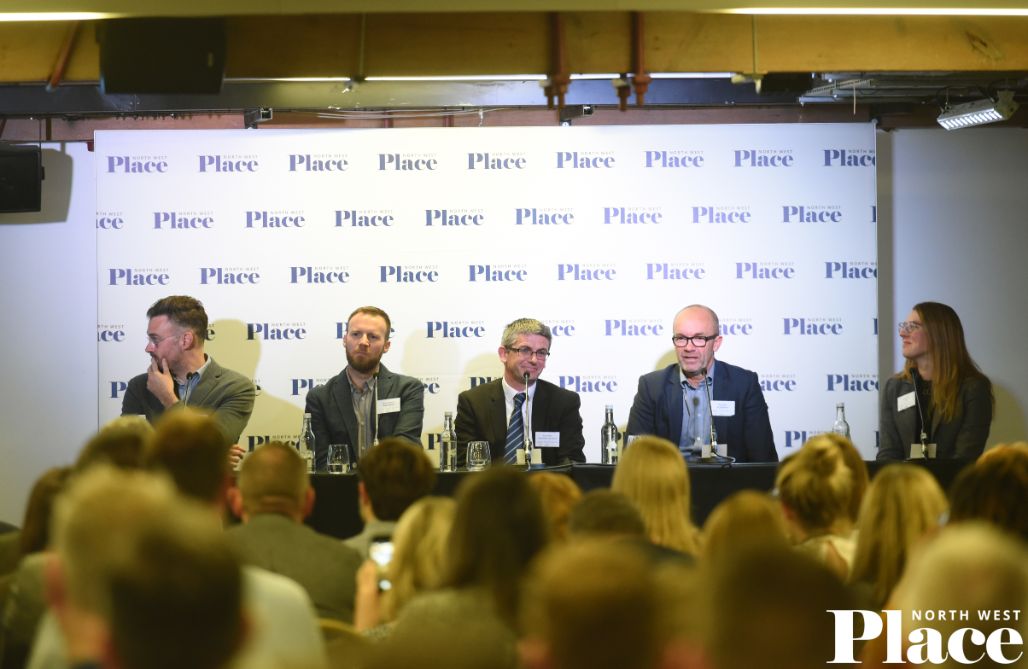
From left: Adam Wisher, James Thomson, Gavin White, Alan Bevan, Amy James. Credit: PNW
He said Liverpool rentals were dependent on the leisure and student market and added: “The lettings market in the UK has been super strong and we’re no different. We’ve got a slightly different tenant base to most as we haven’t got a high level of corporate employment.
“Some people don’t want to tread in the Liverpool market. They’re a bit scared that the rental demand isn’t there. But people who live in the city centre and, indeed, buy in the city centre, are there because they want to live there.
The Manchester comparison
Whelan asked the ensuing panel about Manchester’s booming market and Councillor Gavin White, executive member for housing and development at Manchester City Council, said: “We do have a strong market, but that’s not come by accident. We’ve had to do a clear set of strategies over the last 20, 30 years. Twenty-five years ago we had 500 people living in the city centre, it’s over 50,000 now. Twenty-five years ago, we couldn’t give housing away in Manchester. In some areas, we couldn’t get anybody to live there. That’s not the situation anymore.
“There are still lots of sites that we want to bring forward. I think it’s creating that sense of place, good public transport, closer to jobs, closer to green space. It’s not just about building – it’s creating those communities.”
The social situation
Adam Wisher, senior development manager at Clarion Housing Group, said Clarion is the largest housing association in the UK with around 1,600 homes in the region either consented or on site, and 50% of those will be affordable. From MediaCity to Islington Wharf, there is a mixed-tenure approach with affordable and private properties alongside each other.
He added: “With this type of model and this type of approach, it’s about working with the local authorities who get the model, and working with landowners in the public and private sector, while still getting the right site and the right price.”
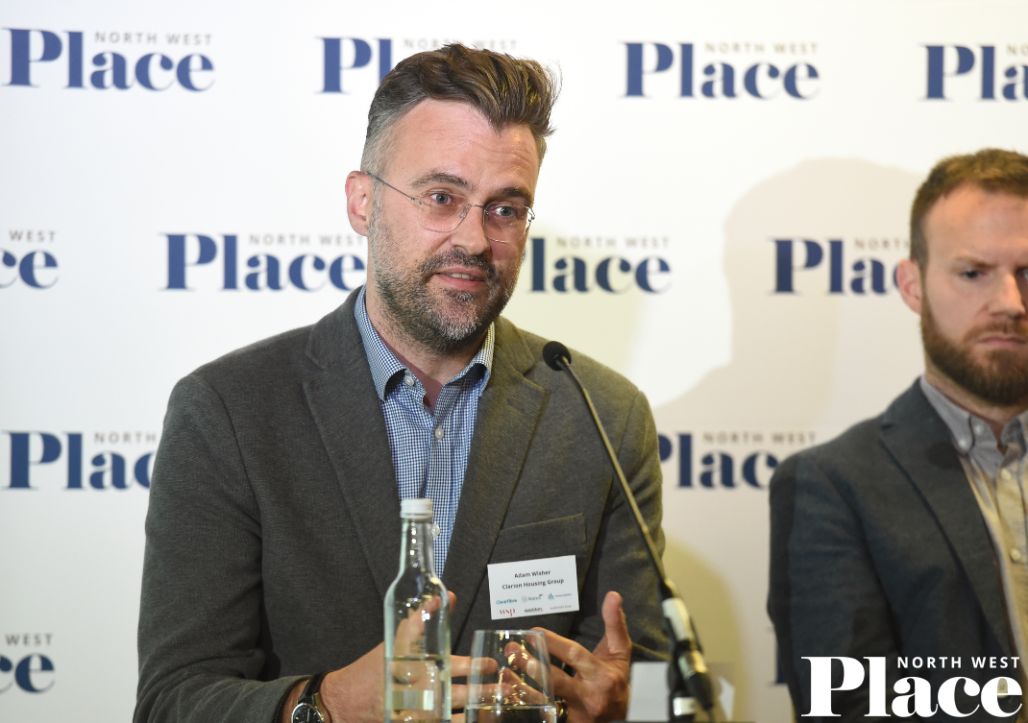
Adam Wisher is senior development manager at Clarion Housing Group. Credit: PNW
Slow supply
Amy James, associate director at WSP engineering consultancy, was quizzed about how the planning system slowed down supply. She said: “I think it does need streamlining. I don’t think it needs scrapping or things stripping out of it – just a bit of simplification and clarity.”
She expressed concerns that the government’s new plans for investment zones would create some disparity: “You can have a really simplified route to getting planning permission and things will happen quicker, but in the next breath, you’re trying to get communities on board to help have an influence in how something might look. I struggle to see how those two come together.”
James Thomson, associate at architect Hawkins/Brown, added: “Some planning departments have quite a pro-development attitude, others less so. But I do get the impression that part of it is down to funding – whether they’ve got the available resources to give developers help, or whether the default position is they don’t have enough time to assess properly.”
Thomson discussed the changes Covid had brought about and said: “I think those who had an opportunity to leave the city did so and I know there were many of us wondering where the dust was going to settle, but what we are seeing now is that the pull of the cities is stronger than ever. People are coming back to the city centres and to Manchester in particular.”
Government intervention
Whelan asked the panel what they thought about the government abolishing the target of delivering 300,000 new homes per year.
James said: “I don’t think it’s a good idea. If the idea is to have a plan-led system, but we haven’t got any targets in there, what are the plans driving towards?”
White added: “Everybody accepts we need housing. The challenge is they don’t want it in their community. The government is really pandering a bit to that nimbyism and we’ve seen that locally. Part of the reason we need to build so high and dense in Salford and Manchester city centre, is to try and protect the green belt in other boroughs. We’re up for that, because we want to protect that urban sprawl, but we’ve got to meet those housing targets.”
When asked about how the government could instill stability in the property industry, Bevan said: “The cost of finance is key to everything that we do. If they’ve created this environment where the belief in the market is that it’s not repairable, we’re in for a rocky ride.”
White added: “The mini-budget needs a complete rethink because it’s completely upset the market. We’ve seen the day-to-day impacts of that on mortgage rates and people pulling out of deals.”
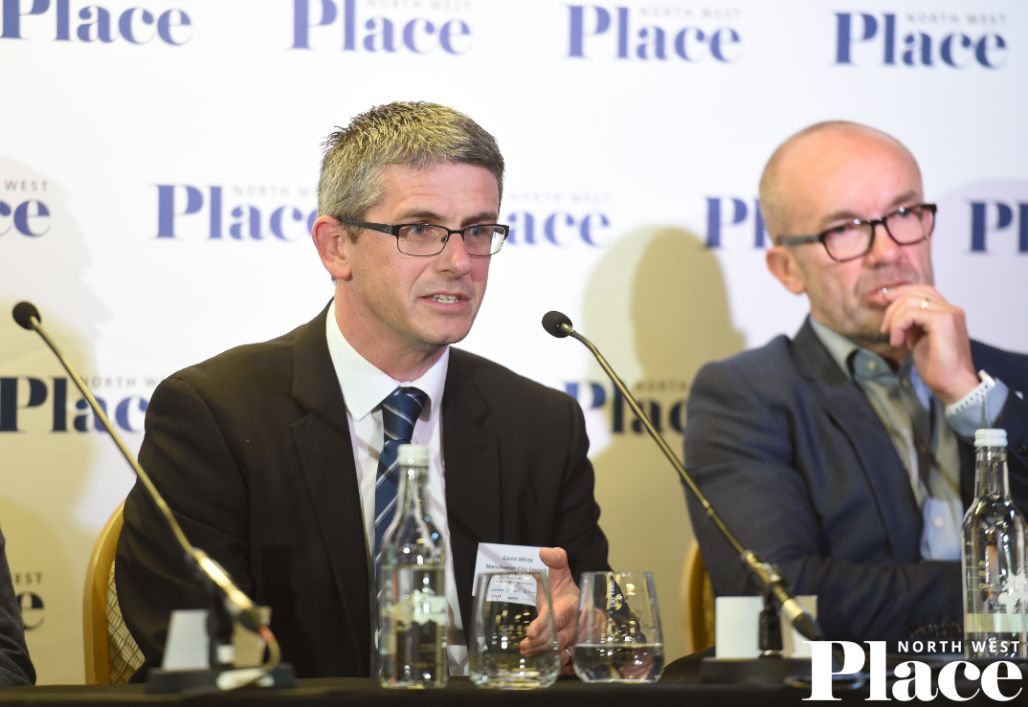
Part of the reason Manchester builds high-rise, high-density schemes is to prevent urban sprawl in other GM boroughs, said Cllr Gavin White. Credit: PNW
Divisive issues
The topic of high-rise led to the topics of population and design. Thomson said: “If you want a thriving, vibrant, busy, international city than you need a full thriving diverse population and that means numbers. High-rise is market driven. We’ve talked about land values and land availability and, in a city location, it isn’t viable to build 20 townhouses on a plot that that is valued on the basis of 100 apartments.”
“We’ve seen the growth of the kind of build to rent sector. It is always about a packaged offer, with community at the heart.”
Wisher agreed: “Some people look up, some people look down, but I think you’re drawn to the ground floors and how those spaces are activated. That’s what residents experience and that’s what the public experience. It’s about creating the right kind of streets.”
James added: “I think it’s about trying to change the perception that development isn’t necessarily a bad thing.”
Brand and demand
Tim Heatley, founder of Capital&Centric, proved he is the master of multitasking as he seamlessly crammed 131 slides into his fast-paced presentation.
“Everything we do has to leave the city or the town that we’re developing in a better place,” he said. “It’s good for the development, it’s good for business, it’s good for everyone. That’s been one of the reasons our growth has been so rapid.”
Schemes in Manchester, Liverpool, Sheffield, Wolverhampton, Birmingham, and Newcastle, and other cities are now in the company’s portfolio.
“Our main role is to create demand,” he added, “and in creating demand, we’re able to take places and cities and towns and buildings that were not viable and make them viable. We create a buzz and a vibe, prove a market and create a ripple effect, and do things that will then invite other investment to follow beyond us.
“If we don’t sell to owner-occupiers, we retain them ourselves, curate them and improve. If you want to buy a Capital&Centric apartment, you can’t go via an intermediary. That’s important because want to protect our brand and reputation and what the consumer is buying into.”
From its Ducie Street Warehouse complex and the Phoenix new build, to the Crusader derelict mill conversion and the Kampus neighbourhood, taking on challenging sites is what the company is all about.
“I think it’s because of the way we make a place feel,” he added. “Brand is really important and it’s a way we help to influence human behaviour. It’s that promise that you’re going to get something of quality, but it’s cool, it’s going to look great, it’s going to be a nice place to hang out. We get a lot of demand, way in advance of launch, because of that perception.”
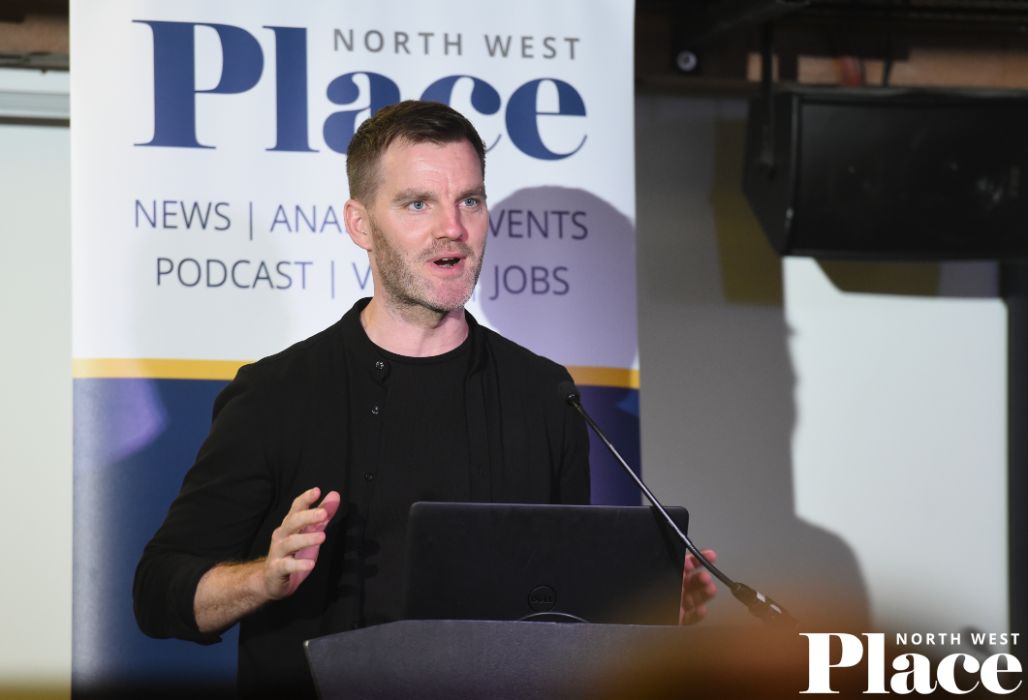
‘Our main role is to create demand…prove a market and create a ripple effect,’ said Capital&Centric’s Tim Heatley. Credit: PNW
Cost of living
Suzanne Benson, head of the Manchester office for law firm Trowers & Hamlins, said there was a lot of interest in the affordable sector. She mentioned the government’s ongoing rent consultation, which will affect how much registered providers can charge, and how shared ownership was the government’s key affordable product, yet that isn’t included in the consultation.
She also talked about changing markets: “Necessity tends to drive creativity. So the last time we were facing what feels like a recession, the private sector drove a lot of the products that came out to help exactly that market – different mortgage products, different rental-based products. I think the rise of the build to rent market will partially service that.”
Maximising assets
Birkenhead is a strong location for Cathy Palmer, head of regeneration delivery at Wirral Council: “It’s a place that’s got fantastic assets in terms of its heritage. It’s got some seeds of fantastic culture and quite inspiring characters. We need to create something that’s uniquely Birkenhead.
“We’re embracing the sustainability agenda, to build with nature, to create healthier homes to address some of those deep-rooted social issues we’ve got. We already have a lot of affordable homes. That isn’t our issue. We need to change the cycle and start to sort of create some more aspirational market housing.”
Building modern homes
Bernadette Barry, senior development manager at Northstone, said flexibility and adaptability were vital in terms of new build: “Can we create something which is truly open plan, so people can choose where their living rooms are, where their kitchens are, and then go further and push sustainability just that little bit further in our homes?
“All of the houses we build are designed to brick dimension standard and that means when we get on site, we have a lot less brick waste than standard new build homes. The central heating systems are designed with similar concepts so you limit the plastic pipe runs. Triple glazing creates a more comfortable environment, but it obviously has implications in terms of energy use.
“There are tonnes of features that go into all the houses – thermostatically-controlled heating zones, smart technology. You can learn how you use your home and adapt heating and lighting with that in mind.”
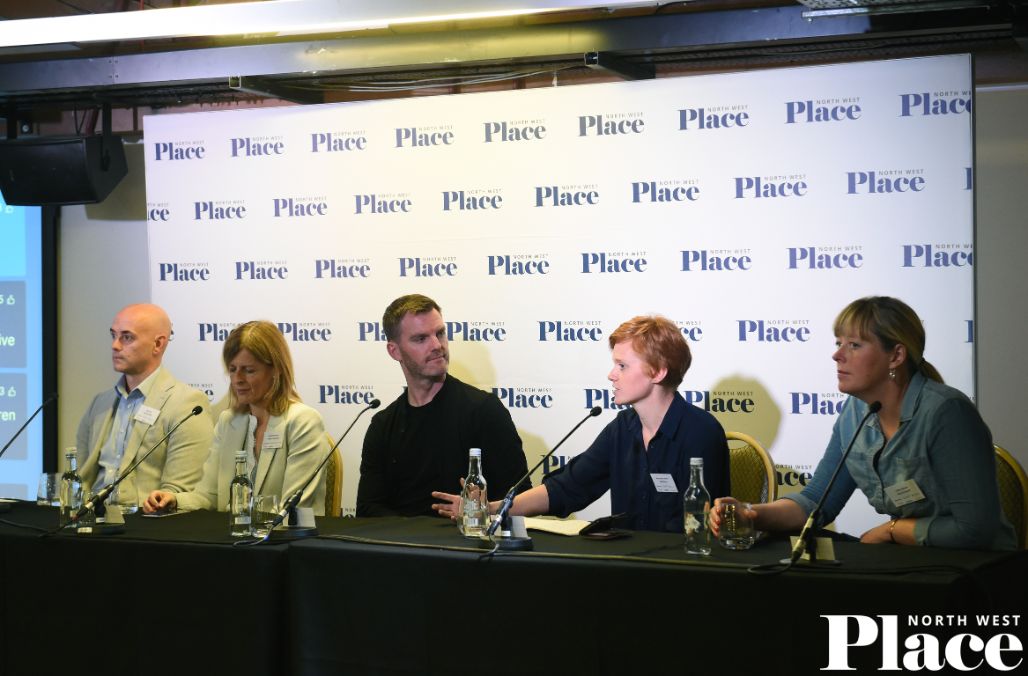
From left: Rob Gill, Suzanne Benson, Tiim Heatley, Bernadette Barry, Cathy Palmer. Credit: PNW
Changing views
Rob Gill, head of acquisitions at Casa by Moda, talked about new attitudes towards rentals – [appetite for] high ESG credentials, cost of living and customer service from property management. He said: “I think the way that the student market has changed over the last 10 years, and what students demand from their rental properties, has fed into the single family market. It’s not seen as a lesser choice to rent.
“I also think it’s been driven by workforce uncertainties. My generation was probably the last to work for people for 20 years. People tend to move around – where you go to university doesn’t necessarily mean where you’re going to put down your roots. I think that urban build-to-rent model fits the modern style of life.”
Heatley added: “I have not seen any tail-off in young people’s demand to own a home. A lot of them will rent if they if they are still transient because of moving jobs, but that that desire is still massively there and that generation is working harder than ever to get to that position.”
Out of the city
Heatley proclaimed the value of moving out of the city centre to find an up-and-coming area, using his newest development in Farnworth as an example: “You can literally go for less than half the cost. It’s exactly the same space, same interior design, exactly the same quality of architecture, exactly the same placemaking. That’s the opportunity for places like Farnworth, Bolton or many places in Greater Manchester.”
Citing the creation of Dock Branch Park, a disused railway cutting in Birkenhead as an example, Palmer added: “Places do stand to benefit from these changes in the marketplace. We seek to capture some of that demand by creating successful communities. How do we create the buzz? How do we make sure the essence of the neighbourhood that already exists there is captured and brought forward into the new phase of development?
“We’re thinking around how we activate spaces so that when those new communities come they bed in very naturally with what’s there already.”

Adaptability is key when it comes to designing new build homes, said Northstone’s Bernadette Barry. Credit: PNW
Is ESG just a badge?
Heatley said: “We’ve been social impact developers since we started and now I’m surrounded by them because they think there’s a badge they can stick on the side. It doesn’t work like that. You have got to be authentic – people can sniff that out.”
Benson added: “Pension funds are investors – now they want to know that a product is sustainable. I think there have been movements, where we’ve got some international funds that have been very, very focused on the social side, but I think the social bit is very much at risk as things get tighter.”
Gill said: “I think it was a tick-box exercise two or three years ago. Now we’re not just settling for what is within the current building regulations or what is deemed to be appropriate through legislation, we’re going beyond that. The E-part is generally seen as the easiest to do, but it comes with a significant cost. I think what is changing is that it’s affecting the customer in the pocket – customers will force the market into a more sustainable position.”
Future predictions
Whelan asked the panel for their predictions for the year 2050.
Heatley said: I think we’ll be having the same debate around the same issues. Gentrification or regeneration is not a new question. Bit by bit, we get some stuff better and better.”
Barry added: “I think people will look back and wonder why we weren’t able to change quicker, why we weren’t able to get where we needed to be faster. The science is there, the evidence base is there. It just requires a few people to kind of come together.”
Gill concluded: “I think people will still be living in properties that are poorly insulated and cost a significant amount to heat unless we do something to embrace higher sustainability credentials.”
Benson said: “I think possibly not our grandchildren, but our great-grandchildren, might be starting to ask who is going to manage these glass buildings we are building then letting for 1,000 years when the building itself is designed to last possibly for 100.”
Tickets are on sale for Place North West’s Merseyside Development Update, to be held on 10 November in Liverpool.
Click any image to launch gallery


